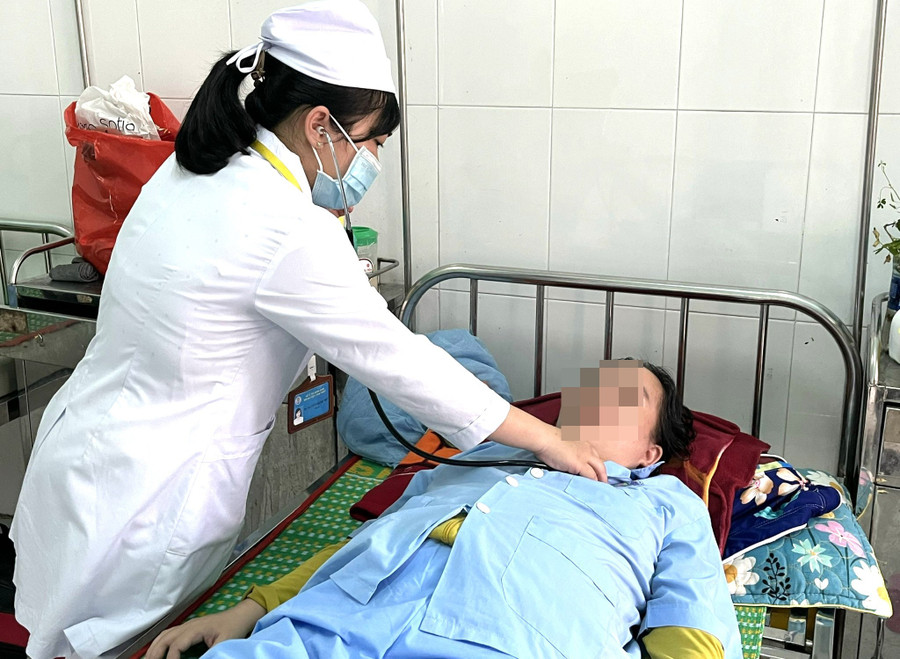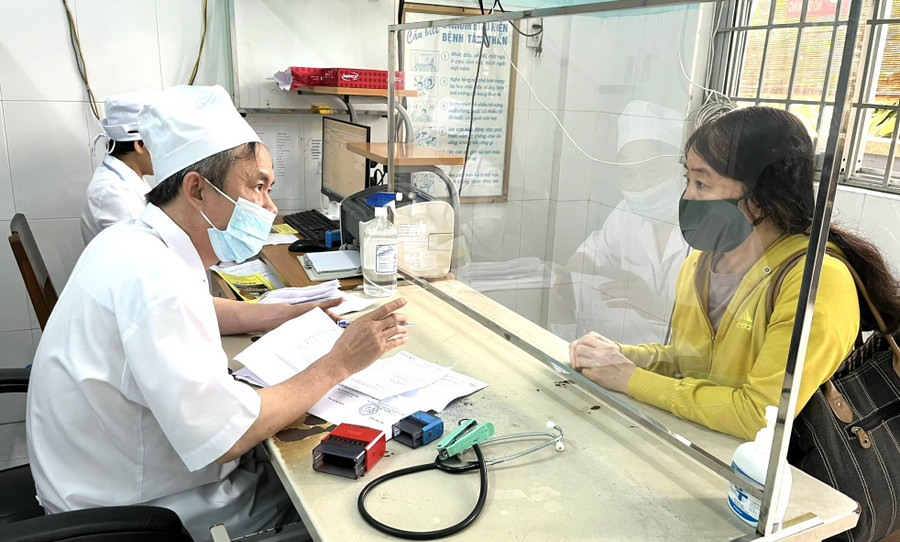At Quy Nhon Psychiatric Hospital in Binh Dinh Province, more than 35,000 outpatient visits have been recorded since early 2025, mainly for depression, anxiety, schizophrenia, and sleep disorders. Dr. Huynh Mong Duc, Acting Director of the hospital, said that about 5.4% of these cases involve depression and anxiety disorders.
Eighteen-year-old H.T.N., from Quy Nhon Tay Ward, has been receiving treatment at the hospital for three months after being diagnosed with an emotional disorder. Her condition worsened following her parents’ divorce. “I neglected my studies and became addicted to gaming. There were times I wanted to end my life,” she recalled.

Her mother, Ms. N.T.H., admitted feeling ashamed at first but later understood that “this is an illness like any other, it needs proper treatment and cannot be ignored.”
Similarly, Ms. H.T.T. from An Luong Commune sought help after months of headaches and fatigue. Diagnosed with anxiety disorder caused by work stress and childcare pressure, she received early intervention that prevented her condition from worsening.
Doctors emphasize that prolonged sadness, insomnia, loss of appetite, or withdrawal from social life for more than two weeks may signal a mental health issue requiring professional attention. “Good mental health allows people to feel satisfied, motivated, and resilient. When it’s compromised, their daily life and relationships are affected,” Dr. Duc said.

Specialists note that stress often arises when job, study, or financial burdens exceed coping capacity, leading to fatigue, irritability, and sleeplessness. Without timely treatment, these conditions can evolve into chronic disorders, severely impacting quality of life.
Public awareness of mental health in Vietnam has improved in recent years, with more young people seeking psychological support. Yet, stigma and hesitation remain widespread, discouraging many from seeking early help.
Dr. Duc urged everyone to treat mental well-being as a daily priority. He recommended adequate sleep (7–8 hours per night), regular exercise (at least 30 minutes daily), a balanced diet, and relaxation activities such as yoga, meditation, or mindfulness. Maintaining positive social connections and sharing emotions with loved ones also play vital roles in recovery.
He also advised limiting exposure to negative social media content and avoiding harmful comparisons with others. “Sometimes, just a sincere conversation can make a person in crisis feel understood and relieved,” Dr. Duc said.
At Quy Nhon Psychiatric Hospital, treatment costs range depending on diagnosis and duration, averaging from 300,000-500,000 VND (approximately USD 12–20) per visit, according to local sources. Doctors stress that early consultation can shorten recovery time and reduce expenses.
















































